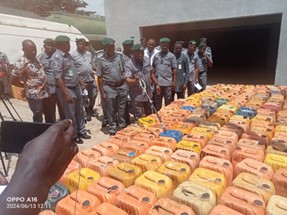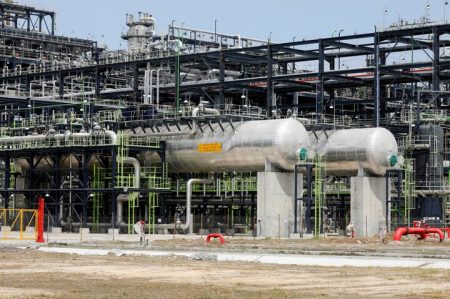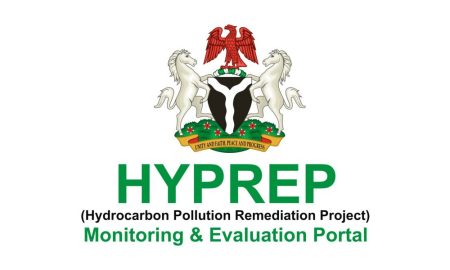21 February 2012, Sweetcrude, ABUJA – The Federal has announced its intention to work with private sector investors to expand some dams that were formerly used for irrigation in Kogi State, in order to boost power generation in the state and beyond.
The Minister of State for Power, Arc. Darius Ishaku, who stated this yesterday in the course of his inspection visits to ongoing irrigation schemes in the state, noted that the option of Public Private Partnership (PPP) would be applied for full utilization of Kampe Dam, for agriculture, water supply, and mini hydro power plant.
He reinstated the importance of early completion of the projects pointing out that the unemployment rate in the state was frightening and stressed the need to keep the Youths off crimes and delinquent behavior.
Ishaku told the Governor that he had visited Girinya irrigation scheme in Koton Karfe Local Government Area of the State and Lokoja Water Supply expansion project as well as Kampe Omi Dam irrigation project and Ejule Ojebe irrigation scheme in Ibaji Local Government Area of the State.
The Minister said his team, was in Niger, Kogi and Kwara States to access all irrigations projects in the North Central zone embarked upon by the Federal Government and to ascertain their various levels of completion.
He therefore warned contractors to either go back to sites or be sanctioned as government would not hesitate to terminate any contract where the contractor showed no sign of seriousness. He said the mandate to restore sanity to the power sector transcends any consideration. It is a directive that must be accomplished the Minister noted.
Ishaku said funding was the major challenge to the completion of all irrigation projects embarked upon by the federal government in the State and noted that lack of commitment on the part of Contractors handling the projects was another challenge that is worrisome to the administration.
The Minister identified employment generation, establishment of cottage industries and improvement in the standard of living of the rural communities as some of the benefits derivable from the projects when completed.
Meanwhile, during a visit by the Minister of State to his Office, the Governor of Kogi State, Captain Idris Wada called for closer working and legal framework between his State and the Federal Government towards the completion of the dam projects in the State on schedule, and that his State is willing and ready to work with Federal Government.
Wada said his government is ready to support the project financially if only to provide the State electricity and advised the Federal Government to establish mini hydro power plants on Ankpa and Ayingba dams.
The Governor said Kogi State was prepared to bear part of the financial burden if only that would ensure successful completion and delivery of the various power projects for immediate use.
The Kampe Dam was constructed by Niko Engineering Limited an indigenous Engineering Company, at a cost of Sixty Eight Million Naira (N68m) during the second republic and was commissioned in 1999 by former Head of State Gen. Abdulsalam Abubakar (Rtd).
The Minister said government would like to enter into agreement with any private company interested in investing in the dam, either for agriculture, water or electricity supply.
The dam has the capacity to generate 2MW of electricity which could be used to power cottage industries as well as enhance irrigation in the area.
Earlier, Managing Director, Engineer Abubakar Aduragba, Lower Niger River Basin Development Authority (LNRBDA), Ilorin, said the Dam provides water supply up to Kabba in Kogi State and can employ over five thousand graduates on subsistence agriculture apart from the electricity it would generate,
Abubakar said the challenges of Omida Dam are landownership disputes, and funding.
In another development, the Managing Director of Lower Benue River Basin Development Authority (LBRBDA), Engineer Isaac Eleojo Ocheja said Ejule Obebe irrigation Scheme has a land area of 2000hectares and area of land cleared for irrigation is 1000 hectares with surface irrigation system and direct pumping from Ota Lake.
Major crops planted in the area include maize, rice, sugarcane, vegetables among others.
Engineer Ojebe said if the project is properly developed and sustained, it would increase crop production, create job opportunities and improve living conditions of rural dwellers.




